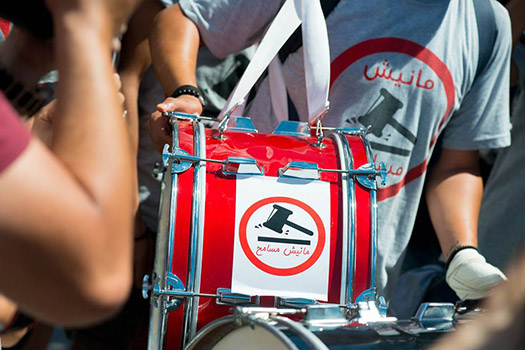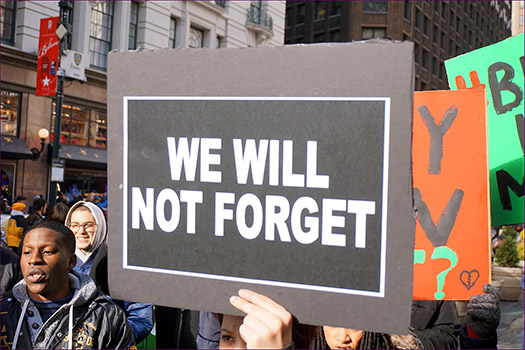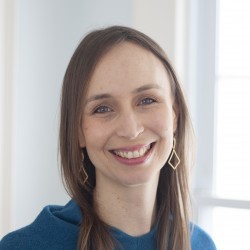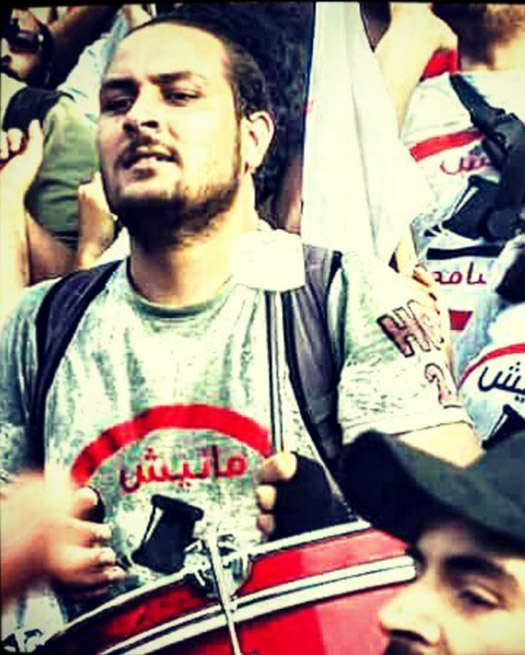by Virginie Ladisch, ICTJ's Senior Expert on Youth and Children
The week before ICTJ launched its Briefing Paper on Engaging Youth in Transitional Justice, I traveled to Tunisia, where protest movements sparked a hunger for transformative justice during the Arab Spring in response to Ben Ali’s regime, but where inequality, impunity, and the limitations of formal justice processes have led to continued, widespread demands for economic reform and protests against corruption, most notably against the 2017 Administrative Reconciliation Law, which grants amnesty to public officials accused of corruption.
As our report highlights, although youth are key political and social stakeholders whose ground-up approaches can strip away at entrenched inequality, marginalization, and impunity, they often do not have a seat at the political negotiating table. In reflecting on what it means to engage and learn from youth, I spoke with Heythem Guesmi, a young Tunisian activist who is fighting systemic oppression, economic exclusion, and impunity that persist despite the Revolution’s initial success. We were joined in the conversation by Thenjiwe McHarris, a young organizer working with Black Lives Matter in the United States—a movement whose urgency also stems from historic marginalization leading to widespread impunity and systematic failures in law enforcement.
Both leaders spoke about how a respect for youth and the role they play in creative problem solving can result in a deeper, intergenerational movement for more just and inclusive societies. As we seek to overcome setbacks in bringing justice to victims of brutality and systemic abuse, we are reminded that we can look to youth-driven movements as a source of innovative approaches. In contexts as diverse as Tunisia and the United States, youth activists often compel us to adopt more dynamic, honest, and horizontal responses to achieving systemic change.
Virginie Ladisch: How did you begin working as a movement builder?
Heythem Guesmi: For me, the beginning was the fight against the Administrative Reconciliation Law. Impunity is the most important cause of injustice in Tunisia. [With our protests] we gave back the streets to the people. After the elections of 2014 in Tunisia, the people became so desperate…because change didn’t come. We didn’t even get what we really wanted. Before 2011, under the dictatorship, we didn’t have the right to gather; we didn’t even have the right to speak. It wasn’t legal. Even complaining wasn’t legal. That was a huge problem, but after the Revolution, we supported a lot of other campaigns, especially social justice campaigns.
The Manish Msamah movement was the fruit of what we had before and after the Revolution. The slogan can be translated as “I will not forgive.” It’s a statement against the amnesty under the Reconciliation Law for those responsible for past crimes. The logo suggests that we're not looking for "revenge;" instead, we ask for accountability and for the corrupt to pay their dues. The inspiration was local and international; from Tunisian groups who fought the dictatorship, and Black Lives Matter was a huge inspiration for me, even though it came after the Revolution ended.
Thenjiwe McHarris: I’m a black girl from the Bronx—born and raised. I spent the past 13 years in organizing, particularly black organizing, fighting state violence and really confronting the ways in which my community in particular was over policed and over surveilled. A lot of members of my family or my community were taken away and arrested and incarcerated over periods of time. And as a young person, I was figuring out what’s the relationship between state violence and racial injustice and economic inequality and overall structural violence targeting black people. About four years ago, Ferguson happened and there was a resistance in St. Louis after the killing of Michael Brown. I found myself very moved by the young people of Ferguson and of St. Louis in the ways that they were resisting despite the level of state violence and oppression that they were facing…Long story short, I quit my job and focused my time on responding in moments of crisis when our communities found themselves in an uprising, protests, following a death.

Virginie: Can you talk about the role of social media in amplifying your messages and galvanizing the strength that movements have?
Thenjiwe: We talk about the scale of wealth and capitalism and I think simultaneously we’ve seen an increasing scale of communication. There’s always been a technology of the time. This is not new. But for each generation it feels new. And so that for me poses a lot of opportunities from a movement perspective, and also a lot of challenges. I think about being inspired by Tunisia, and how the Egyptian Revolution was inspired by Tunisia, Occupy Wall Street was inspired by Egypt and the occupation of Tahir Square. We were able to be inspired by each other because we saw what was happening online, and that was something that we didn’t have decades ago. If there’s a protest happening in Madison, Wisconsin, it is likely to be documented and people are able to learn about what’s happening in real time…One thing I’ve learned is that resistance is contagious. Whenever we see someone else doing it, whether it’s in our country or abroad, it inspires within us the possibility that we can too.
Virginie: I think it’s interesting just in your first few comments you both mention this idea of mutual inspiration and connection. One might think that between the U.S. and Tunisia there’s a lot of difference, but there are also similarities in over policing, surveillance, and lack of freedom of expression, right? And also, both of the movements you have been involved with are looking at the relationship between state violence and structural economic violence. I would be interested to hear your analysis of the causes of structural economic violence.
Heythem: We have similarities, but there are specific problems in the “Third World.” We have a big problem of inequality in Tunisia. I am a native of the interior region, Gafsa, where we have phosphate (It’s like oil for North Africa), where we have great [inequality.] We have great agriculture in Tunisia, but we always say that tourism is better and we always privilege the coast. So, I’m working on that in an NGO in an environmental department, to figure out a solution for people in the interior regions to have more agricultural activity instead of extractivism.
Thenjiwe: Something that we have tried to do, particularly in the spaces where we do demand articulation, is to reject what we call false solutions which are reforms that don’t really address the suffering of our communities or the root causes that are responsible for state violence and economic inequality—and actually at times are contributing to it. And so we try to reject, or we set up a way of interrogating proposed policy reforms...whether it’s local state or federal policy that essentially centers profit and deprioritizes people which can be seen across the spectrum, or this country’s obsession with domination. That’s about power but it also comes from patriarchy and essentially the need to have power over as opposed to thinking “what does it mean to have power with communities?” I think about how all that feeds into institutions that then work together to create this structural violence and barriers for us—an inability for communities that are suffering to access what they need.
Virginie: The point you raised about false solutions is really interesting. Similar to the way in which there can be false solutions, I think there can also be a false sense of the problem. And essentially the person who defines the problem controls who’s inside or outside of that conversation. So what strategies have you used to try and shift the public narrative about the problem and possible solutions?
Thenjiwe: The first issue is what I’ll call the “bad apple” practice, which essentially narrows the problem to an individual, as opposed to an actual institution that breeds individuals that carry out particular acts. So, for example, “that was a bad police officer,” as opposed to “we have a problem with policing or with criminal justice in this country.” Another one is the narrowing of the problem. So, it’s not just the criminal justice system…it’s everything from housing, to health care to food, and the way in which the systems are in relationship to each other to create injustice...So, what we’re trying to do is not be confined to boxes in which policymakers try to find easy solutions to our problems. The solution is never going to be easy; it requires a deep study of the ways in which the institutions are harming our people, and of whose interests it serves. Our job as an organizing class is also to set the foundation for the next generation, to push for these large lifts of demands that I think will take generations to achieve over time.

Heythem: I can’t agree more. We are doing our work for the next generation, to seek the continuity of what people before us have done, to create an open road for those who come after us.
To answer your question about strategies, we are very thankful to be the generation of social media because that really helped us to reach many people to get informed and to join our cause. For example, with the Administrative Reconciliation Law, giving amnesty to businessmen and women who took from the Commonwealth of the Tunisian people before the Revolution…The first thing we did was to produce materials explaining the danger of the Reconciliation Law, which gave amnesty for three crimes: businesspersons who took loans from national banks during the previous regime without paying them back, currency crimes, and administrative corruption. We [ultimately] managed to create a fusion between the protests and the Chamber of Deputies, because we lobbied with the deputies who were against the law and even invited them and their youth partisans to join us in the streets. With these actions, we were able to stop the law twice, although it passed on the third attempt. We are against the final version of the law, and we are waiting for the constitutional court to be gathered in order to present our arguments against it.
Virginie: Building on that, when we met in Tunis, you told me that the people in the government expected you to be angry. And you decided to counter that with humor. Can you share a little bit more about your movement strategy?
Heythem: Yes, in fact, when we post things about this law, or about police brutality, we always finish our posts with some humor, you know, punch lines. And even in the streets, we have a hashtag: “ready to fight, ready to celebrate.” A protest can be serious and difficult to organize, so we celebrate when it succeeds. We celebrate it with flames, like the ones used by football fans. We organize in innovative, popular ways, such as using local folk music for slogans and internet campaigns. We have changed the mood with our drums, chants, text, and lyrics, and they are easier for the average citizen to understand.
Virginie: To go back for a second to the idea of shaping the problem, in Tunisia there was a transitional justice (TJ) law with different elements, including a truth commission, which is wrapping up its work. What do you see it has been able to achieve, if anything, and how is your movement trying to push a step further, beyond what’s already been done through the more formalized TJ process?
Heythem: We don’t want to have one way or only one path to deal with problems that are dynamic. Because we have a problem that moves, you just can’t have a recipe of solutions. We need to always be clear on what constitutes the problem, and after that, how we can give solutions. So, for the Truth Commission, we’re not against it; we supported it, but we had our opinions about many of the decisions they made…We also have a lot of problems with people who helped the system before, and they are back now with a new mandate of the president. It’s like they are recycling themselves, and they’re asking to be forgiven. Our current president tortured people with his hands. Imagine this situation. It’s the difference between good and bad. It’s not big words. It’s not institutions. It’s about human nature; it’s about psychology. It’s so basic. We have various problems that are dynamic, and we don’t just need a static solution for everything. Experience makes it clear that things don’t work this way.
Virginie: I think the point you make about a static solution, that’s an unfortunate way in which the field of transitional justice has been interpreted and implemented in some contexts—as a recipe or as one approach to deal with a problem—whereas from my perspective it’s about creative problem solving and it’s meant to respond to the context. Do you have any thoughts on what a transitional justice process could look like here in the U.S.?
Thenjiwe: I do think we can learn in the U.S. by studying how different models have taken place in other countries. I think about South Africa a lot. What is truth and forgiveness, and acknowledgement in the absence of accountability? …There’s a really good quote I read recently that says, “Sorry ain’t the answer. Sorry is what comes before you start doing the work.” Sorry is the beginning, and the rest is the labor. It also takes…trial and error and experimentation. We have to be creative. We have to try over and over and over again to figure it out.
Virginie: Speaking of experimentation, you had said earlier that you were inspired by the ways in which resistance movements were becoming more innovative and inclusive. What do you see as the role of youth in pushing for new strategies?
Thenjiwe: There’s a saying that the youth are the backbone of every movement. Young people resist in ways that are deeply profound and inspiring. That radical energy is important for us to acknowledge…I think young people’s desire to aim for what they yearn for and not wanting to compromise is actually a really important energy and element to resistance work that needs to be nurtured and cared for and deeply respected…When you’re able to resist in ways that are creative and energetic and you’re also willing to push the boundaries of possibility, and also when you will inherit the reigns of leadership, there needs to be respect and nurturing offered to that part of our movement.
Heythem: As youth, we have a certain anxiety. We say, “later I won’t be able to fight, to have opinions. I will have many responsibilities, so this is now or never.” This age is about dreams, and after that it will be goals, and after that it will be plans. Let us live our age with our dreams and gradually with time, they will become plans. We’ve shown them that we have new ideas that actually can work.
Heythem Guesmi is an anti-corruption, anti-impunity, and climate justice activist and member of the movement Manich Msamah, loosely translated as “I Will Not Forgive.”
Thenjiwe McHarris is an organizer and strategist focusing on anti-racism, criminal justice, and human rights.
FEATURED PHOTO: Young people from the Manish Msamah movement protest corruption in Tunisia. ( Heythem Guesmi)


